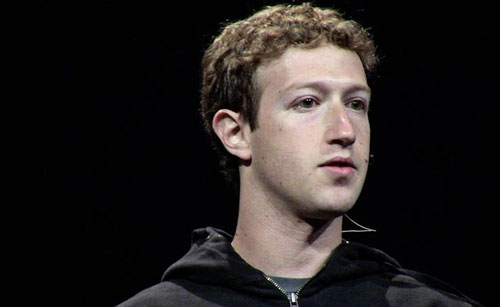
Mark Zuckerberg controls a majority of Facebook’s voting rights, and will continue to enjoy that control after it goes public, according to an unusual arrangement he struck with some key investors and colleagues among Facebook’s shareholders.
A string of voting arrangements outlined in Facebook’s Securities and Exchange Commission filing show that some of the company’s most powerful shareholders have ceded their voting rights to Zuckerberg, the company’s chief executive. While Zuckerberg only owns 28,2% of the Facebook’s shares, the additional “shares subject to voting proxy” gives him an additional 30,6% of the voting power, leaving him with a total of 56,9% of the shareholder voting power. That gives Zuckerberg full control of the company’s decision making.
Under the arrangement, Dustin Moscovitz, Sean Parker and a host of other Silicon Valley bigwigs have given Zuckerberg “irrevocable proxy” to control their votes. That means that their shares will swing with his shares.
Zuckerberg also has irrevocable control over shares held by DST, Greylock, Accel Partners and other major firms and investors — and the voting rights that go along with those shares — in most circumstances.
“This is not common at all,” said Menlo Ventures partner Mark Siegel, who has monitored quite a few IPOs in his time in Silicon Valley and spoke to VentureBeat by phone today.
“He negotiated a very unique deal,” said Siegel of Zuckerberg’s coup. While no one knows exactly why Moscovitz, Parker and a slew of high-powered venture capital firms would have given up their votes, Siegel speculated, “I’m sure there’s a point where shares were offered with that as a contingency.”
In other words, this may have been a quid-pro-quo trade of money (shares) for power (votes).
And maintaining power is something that Zuckerberg has focused on since Facebook’s inception.
“To give Mark and Sheryl their due, it looks brilliant having turned down those earlier offers,” said Siegel, referring to a past multibillion-dollar acquisition offer from Yahoo. “I think they understood before a lot of us did what the potential of the company was… Staying independent and private was a pretty smart move.”
Now, Zuckerberg will continue to exert his control over the publicly traded company; with his block of votes, he will have more sway in important decisions such as changes to the board, mergers, or splitting up parts of the company.
“Every company puts in place things like a poison pill, things that make it possible for dissenting shareholders to prevent a hostile takeover,” said Siegel. “Presumably [the voting arragement] puts more of that control in one individual’s hands … it concentrates a lot of traditional protections.”
Separately, a special “class B” of shares has let Zuckerberg and a small group of executives and employees at Facebook exert more control than they otherwise would by giving them 10 times the number of votes per share than “Class A” shares. Class A shares are the ones public investors will get.
This will also give Zuckerberg the ability to maintain control of Facebook even if some of his proxy friends decide to sell their shares. That’s because, under the rules of Facebook stock, those class B shares, if sold, automatically get converted to class A. Thus, people buying from the special proxy share owners will only get class A shares with only one vote per share. Zuckerberg is thus left a greater majority of the powerful class B shares, and thus will be more able to maintain control overall.
So, except for unforeseen edge cases, Zuckerberg will maintain control of a huge block of Facebook shares (and votes) until he dies or divests. But as far as Facebook is concerned, Moscovitz, Parker, DST and others don’t constitute a group because they’re not voting together — Zuckerberg is voting for them. — Jolie O’Dell, VentureBeat![]()
- Image: Jolie O’Dell, VentureBeat
- Subscribe to our free daily newsletter
- Follow us on Twitter or on Google+ or on Facebook
- Visit our sister website, SportsCentral (still in beta)




